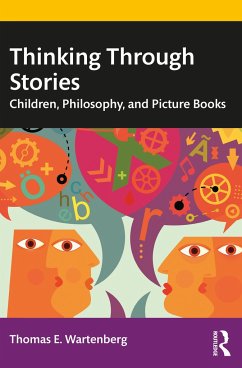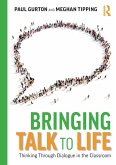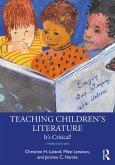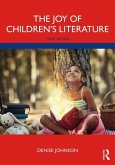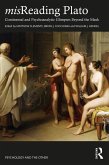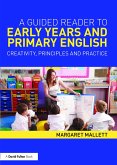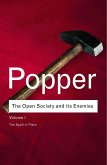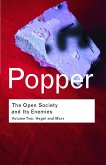This book provides justification and instruction for exploring philosophy with children, especially by using picture books to initiate philosophical discussion. By demonstrating to teachers, and others that picture books often embed philosophical issues into their narratives, and that this makes picture books a natural place to go to help young children investigate philosophical issues, the author offers a straightforward approach to engaging young students. In particular, this volume highlights how philosophical dialogue enhances children's sense of self, provides a safe space for the discussion of issues that they are confronted with in living their lives, and develops an admirable method for resolving conflict that the children can use in other contexts.
Thinking Through Stories strengthens the case for pre-college philosophy and shows us the value of picture books for engaging young children in philosophical discussion. In addition, Wartenberg offers sage advice about how to facilitate philosophical discussion with young children, especially when it comes to dealing with difficult topics. I highly recommend this book to any teacher who values children's native curiosity and is sensitive to their concerns.
Dr Philip Cam is Honorary Associate Professor at the School of Humanities and Languages, University of New South Wales. His most recent book is Philosophical Inquiry: Combining the Tools of Philosophy with Inquiry-based Teaching and Learning.
In this elegantly and clearly written book, Tom Wartenberg provides a compelling account of why children will benefit from doing philosophy and of the value of picture books in helping them to do so. Teachers and parents interested in doing philosophy with their children should read this book.
Berys Gaut and Morag Gaut, authors of Philosophy for Young Children: A Practical Guide
Thinking Through Stories: Children, Philosophy, and Picture Books significantly fills a gap in the K-12 philosophy literature. By emphasizing the role that picture books can play, Wartenberg accomplishes two important tasks. First, he demonstrates that not all philosophy needs to be done with arguments or words. Second, by focusing on the role that picture books can play in inspiring philosophical ideas, he expands the range of ages for children who can participate on their own terms, without, for example, someone needing to read a book to them. Wartenberg's approach provides greater autonomy to children who wish to participate in philosophical discussions and for that he should be deeply commended.
Claire Katz is Professor of Philosophy and the Murray and Celeste Fasken Chair in Distinguished Teaching and an Associate Dean of Faculties at Texas A & M University. She is the editor of Growing Up With Philosophy Camp.
Thinking Through Stories reflects on the Philosophy for/with Children movement at its 50-year mark. Weaving together theory and practice, Wartenberg contrasts different strands within the movement: picture books vs philosophical novels; philosophy as established canons of thought vs the embrace of wonder and perplexity. He offers insightful and practical advice for how to help children "think for themselves together" and underscores the Social and Emotional Learning to be gained through such joint inquiry. This is a must read for those new to the field and seasoned practitioners alike.
Dr. Erik Kenyon teaches Middle School Latin and Humanities at Friends Academy in Dartmouth, MA. He is co-author of Ethics for the Very Young: A Philosophy Curriculum for Early Childhood Education.
Thomas Wartenberg understands two things that are not widely enough appreciated. He know that great children's books touch on profound themes and knows that kids, even quite young kids, are natural philosophers eager to explore big ideas. Thinking Through Stories explains why it is important to help children learn to think philosophically and it offers thoughtful advice about how to do so using children's books (especially children's books). Wartenberg also shows us how to deepen the experience of reading to children. The book offers a road map to joy for parents, teachers, and philosophers.
Sam Swope, Author of The Araboolies of Liberty Street, and founder of the Academy for Teachers
Dr Philip Cam is Honorary Associate Professor at the School of Humanities and Languages, University of New South Wales. His most recent book is Philosophical Inquiry: Combining the Tools of Philosophy with Inquiry-based Teaching and Learning.
In this elegantly and clearly written book, Tom Wartenberg provides a compelling account of why children will benefit from doing philosophy and of the value of picture books in helping them to do so. Teachers and parents interested in doing philosophy with their children should read this book.
Berys Gaut and Morag Gaut, authors of Philosophy for Young Children: A Practical Guide
Thinking Through Stories: Children, Philosophy, and Picture Books significantly fills a gap in the K-12 philosophy literature. By emphasizing the role that picture books can play, Wartenberg accomplishes two important tasks. First, he demonstrates that not all philosophy needs to be done with arguments or words. Second, by focusing on the role that picture books can play in inspiring philosophical ideas, he expands the range of ages for children who can participate on their own terms, without, for example, someone needing to read a book to them. Wartenberg's approach provides greater autonomy to children who wish to participate in philosophical discussions and for that he should be deeply commended.
Claire Katz is Professor of Philosophy and the Murray and Celeste Fasken Chair in Distinguished Teaching and an Associate Dean of Faculties at Texas A & M University. She is the editor of Growing Up With Philosophy Camp.
Thinking Through Stories reflects on the Philosophy for/with Children movement at its 50-year mark. Weaving together theory and practice, Wartenberg contrasts different strands within the movement: picture books vs philosophical novels; philosophy as established canons of thought vs the embrace of wonder and perplexity. He offers insightful and practical advice for how to help children "think for themselves together" and underscores the Social and Emotional Learning to be gained through such joint inquiry. This is a must read for those new to the field and seasoned practitioners alike.
Dr. Erik Kenyon teaches Middle School Latin and Humanities at Friends Academy in Dartmouth, MA. He is co-author of Ethics for the Very Young: A Philosophy Curriculum for Early Childhood Education.
Thomas Wartenberg understands two things that are not widely enough appreciated. He know that great children's books touch on profound themes and knows that kids, even quite young kids, are natural philosophers eager to explore big ideas. Thinking Through Stories explains why it is important to help children learn to think philosophically and it offers thoughtful advice about how to do so using children's books (especially children's books). Wartenberg also shows us how to deepen the experience of reading to children. The book offers a road map to joy for parents, teachers, and philosophers.
Sam Swope, Author of The Araboolies of Liberty Street, and founder of the Academy for Teachers

